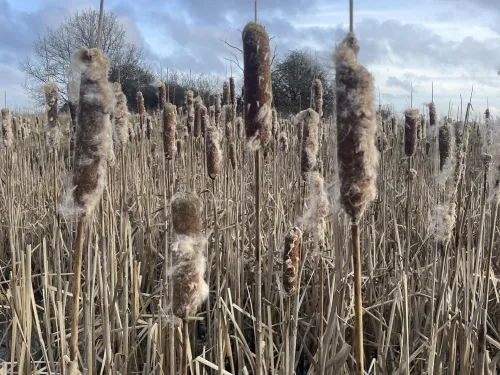
February on Hothfields: A spotlight on reed mace
Long-time volunteer Margery Thomas explores the wildlife at Hothfield Heathlands in February, where reedmace tells a story...
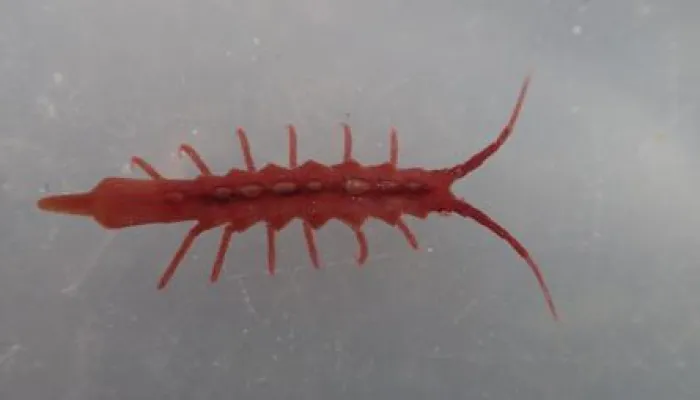
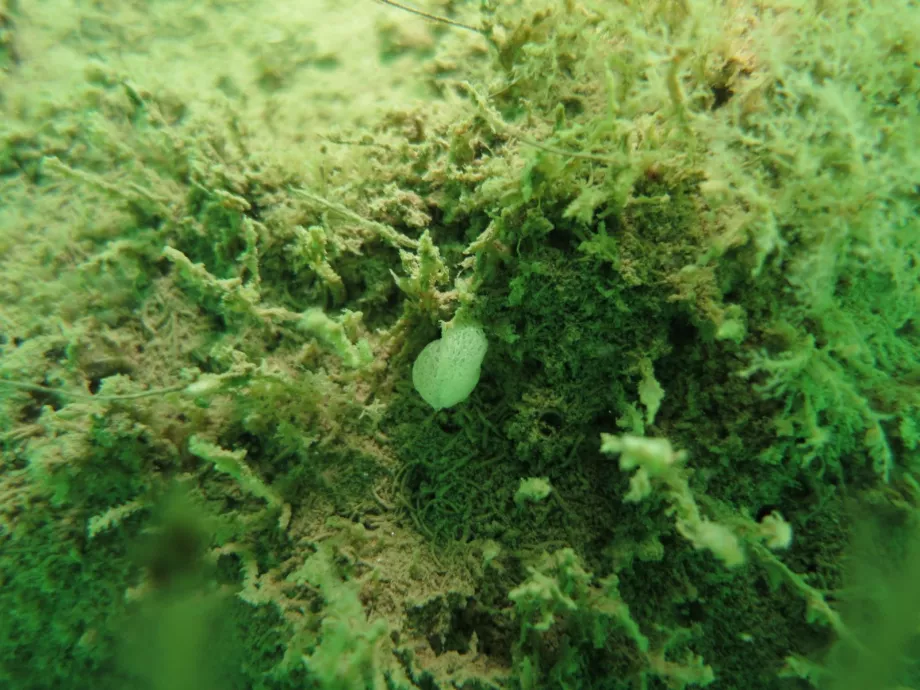
Bryozoans are tiny aquatic invertebrates that form colonies made up of lots of connected ‘boxes’ called zooids. At first glance they can often be mistaken for a rather dull coloured piece of seaweed as several have a branching, or leaf-like appearance, but if you look very closely, you will be able to see the tiny boxes in which the individuals live. Bryozoans are filter feeders, using their tiny, hairy tentacles to waft bacteria and single-celled algae into their mouth; and they in turn are fed on by other marine animals, such as sea slugs.
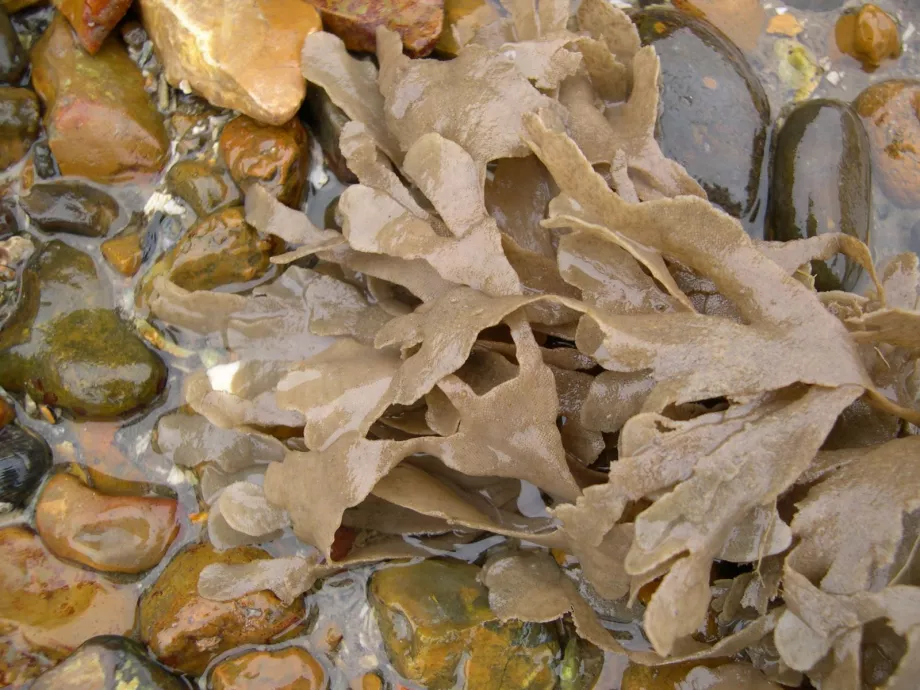
Just like a colony of bees has specialised workers and drones, individuals in bryozoan colonies have specialised jobs too. Some help to attach the colony to the seabed, some defend the colony against predators or larvae of other animals that might settle on it, and some are responsible for reproduction.
There are approximately 300 species of bryozoans found in British waters, but very few records of Cellaporina decipens exist from around the UK.
This is not the first time our Seasearch and Shoresearch volunteers have discovered marine species new to the Kent list.
A tiny stalked jellyfish Craterolophus convolvulus was found near Dover, a delicate white sponge, Clathrina coriacea was recorded on a dive below Folkestone Warren, and a very unusual red crustacean was photographed at Mill Point, Sandgate, now awaiting confirmation as Stenosoma lancifer.
There are very few records of any of these species around UK shores.
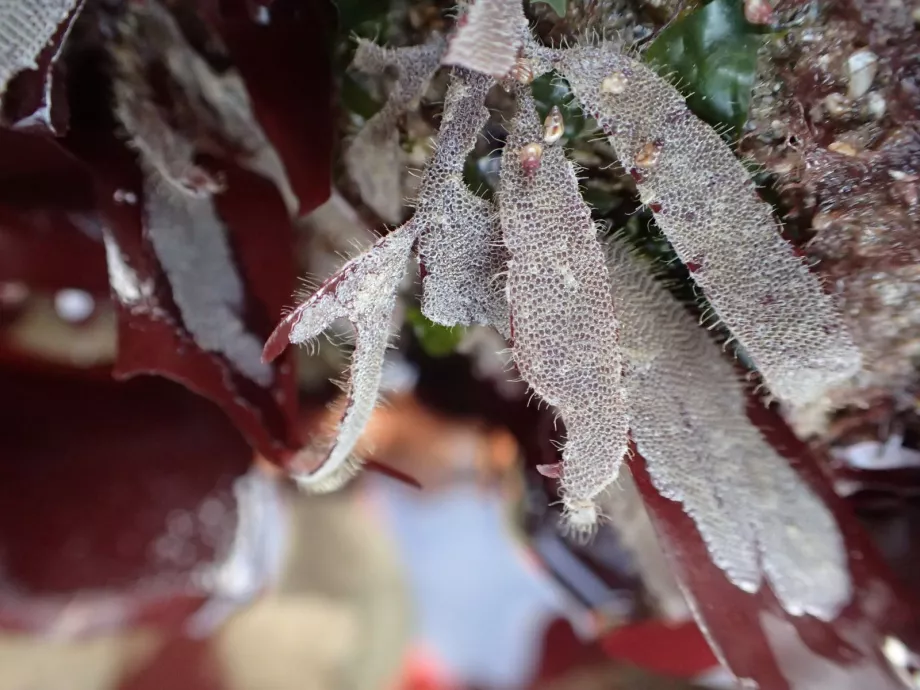
This just goes to show how important Seasearch diving surveys are for monitoring the diversity of our local marine wildlife.
In fact it was data about the diversity of fragile sponges and anemones collected by Kent Seasearch divers that helped to ensure that the Folkestone Pomerania was included in the network of Marine Conservation Zones.
This MCZ now has a bylaw in place protecting the seabed from damaging bottom-towed fishing gear – we believe this is the first MCZ to receive protection of this kind.
So next time you are out at the coast take a closer look – that beige bit of seaweed lying on the strandline could be a bryozoan, and that unusual little creature you’ve never seen before may be another first for Kent!

Long-time volunteer Margery Thomas explores the wildlife at Hothfield Heathlands in February, where reedmace tells a story...

If December was a merry berry month for humans celebrating mid-winter festivities, January and February are serious berry months for birds and mammals aiming to survive winter...
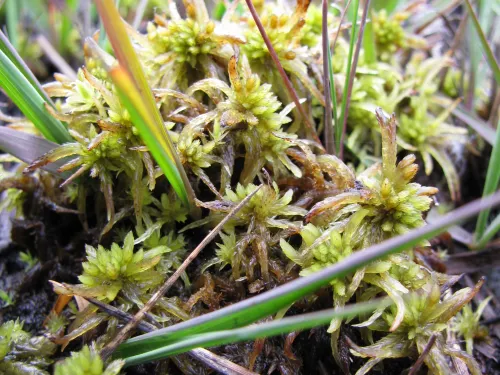
In our December instalment about Hothfield we focus on mosses and lichens on the reserve. Read on to find out more.